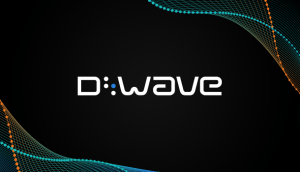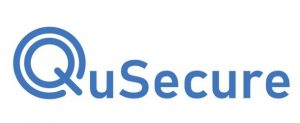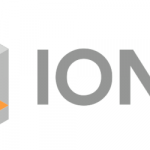Quantum News Briefs August 11: The impact of European quantum sensors on global connectivity’; D-Wave reports second quarter results; Quantum information school launches at Fermilab + MORE

Quantum News Briefs:
The impact of European quantum sensors on global connectivity
 The impact of European quantum sensors on global connectivity is multifaceted. Quantum News Briefs summarizes an August 10 Fagen Wasanni Technologies article.
The impact of European quantum sensors on global connectivity is multifaceted. Quantum News Briefs summarizes an August 10 Fagen Wasanni Technologies article.
In the telecommunications sector, these sensors are expected to enhance the speed, capacity, and reliability of data transmission. They can detect and correct errors in real-time, thereby reducing latency and improving the quality of service. This could revolutionize the way we communicate, making it possible to transmit large volumes of data across vast distances with minimal loss of information.
In the field of navigation, quantum sensors could provide a viable alternative to Global Positioning System (GPS) technology. They can measure gravitational fields with such precision that they can determine a location based on the Earth’s gravitational anomalies. This could lead to the development of a new generation of navigation systems that are immune to interference and can function even in the most challenging environments.
In the security sector, quantum sensors could enhance the detection of threats and the protection of critical infrastructure. They could be used to detect hidden explosives, monitor border crossings, or even identify cyber threats by detecting anomalies in data traffic.
The potential of European quantum sensors is immense, but their successful deployment hinges on overcoming several challenges. These include the need for robust quantum algorithms, the development of scalable manufacturing processes, and the establishment of regulatory frameworks that safeguard privacy and security while fostering innovation.
In conclusion, European quantum sensors are set to play a pivotal role in shaping the future of global connectivity. They promise to deliver unprecedented levels of precision, reliability, and versatility, thereby transforming the way we communicate, navigate, monitor health, and ensure security. Click here to read the original article in-entirety.
D-Wave Reports Second Quarter Results

D-Wave Quantum Inc., (NYSE: QBTS) (“D-Wave” or the “Company”) a leader in commercial quantum computing systems, software, and services, today announced financial results for its fiscal second quarter ended June 30, 2023. Quantum News Briefs shares the financial results below.
Financial Results for the First Half of Fiscal Year 2023
-
-
- Revenue: Revenue for the six months ended June 30, 2023, was $3.3 million, an increase of $207,000, or 7%, from revenue of $3.1 million in the six months ended June 30, 2022.
- Bookings1: Bookings for the six months ended June 30, 2023, were $5.4 million, an increase of $3.7 million, or 209%, from bookings in the six months ended June 30, 2022.
- Average Deal Size2: During the six months ended June 30, 2023, D-Wave’s average deal size per booking increased by 252% when compared to the six months ended June 30, 2022. During the same period, the average deal size per booking from commercial customers increased by 232% year over year.
- GAAP Gross Profit: GAAP gross profit for the six months ended June 30, 2023, was $1.1 million, a decrease of $722,000, or 39%, from $1.8 million in GAAP gross profit the six months ended June 30, 2022, with the decrease due primarily to higher stock-based compensation expense in cost of sales in the first half of fiscal 2023.
- GAAP Gross Margin: GAAP gross margin for the six months ended June 30, 2023, was 34.2%, a decrease of 25.7% from the 59.9% GAAP gross margin in the six months ended June 30, 2022, with the decrease due primarily to higher stock-based compensation expense in cost of sales.
- Non-GAAP Gross Profit3: Non-GAAP gross profit for the six months ended June 30, 2023, was $1.8 million, a decrease of $83,000, or 4%, from the non-GAAP gross profit of $1.9 million in the six months ended June 30, 2022. The difference between GAAP and non-GAAP gross profit is limited to non-cash stock-based compensation and depreciation expenses that are excluded from the non-GAAP gross profit.
- Non-GAAP Gross Margin4: Non-GAAP gross margin for the six months ended June 30, 2023, was 56.1%, a decrease of 6.4% from the 62.5% non-GAAP gross margin in the six months ended June 30, 2022. The difference between GAAP and non-GAAP gross margin is limited to non-cash stock-based compensationand depreciation expenses that are excluded from the non-GAAP gross margin.
- GAAP Operating Expenses: GAAP operating expenses for the six months ended June 30, 2023, were $46.7 million compared with $25.2 million in the six months ended June 30, 2022, with the year-over-year increase including $9.3 million in non-cash stock-based compensation expense and higher public company and headcount-related expenses.
- Non-GAAP Adjusted Operating Expenses5: Non-GAAP operating expenses for the six months ended June 30, 2023, were $33.7 million compared with $23.0 million in the six months ended June 30, 2022, with the difference between GAAP and non-GAAP operating expenses being primarily non-cash stock-based compensation expense, non-recurring one-time expenses, and depreciation.
- Net Loss: Net loss for the six months ended June 30, 2023, was $50.5 million, or $0.40 per share, compared with a net loss of $25.3 million, or $0.20 per share, in the six months ended June 30, 2022.
- Adjusted EBITDA6: Adjusted EBITDA for the six months ended June 30, 2023, was negative $31.8 million, compared with a negative $21.1 million in the six months ended June 30, 2022, with the increase due primarily to higher public company and headcount-related expenses.
Click here to read complete D-Wave announcement.
-
-
Quantum information school launches at Fermilab
- The first U.S. Quantum Information Science School launched at Fermilab aims to educate the next generation of researchers on quantum device design and fabrication; quantum computing algorithms; quantum sensing; and cryogenics, the behavior of materials at very low temperatures. Quantum News Briefs summarizes August 10 article in Chicago Tribune.
Only half of all applicants were accepted. The students hope to apply what they learn to their future work.
Leticia Madureira, a doctoral student at Carnegie Mellon University in Pittsburgh, hopes to develop new algorithms for quantum computer simulations to analyze molecular systems.
Anastasia Simonova, a student at the University of California at Berkeley, plans to study quantum hardware in graduate school. “I’m very excited to be here,” she said. “I’m pretty new to this field.”
The field attempts to take advantage of the unique and perplexing properties of subatomic particles, which act as both particles and waves, and which seemingly act on each other instantaneously, though they are far apart — a phenomenon that Albert Einstein called “spooky.”
While classical computing uses bits of information containing either a one or zero, quantum bits — or qubits — are like a coin flipped in the air — they contain, in effect, both a one and zero, to be determined once it’s observed.
That should make quantum computing able to handle exponentially more complex problems, like encryption for national security or predicting the structure of new medicines.
But scientists must clear many hurdles before large-scale quantum computing and networking are practical.
To take on that challenge, Fermilab is part of the Chicago Quantum Exchange — a collaboration also involving the University of Chicago, Northwestern University, the University of Illinois at Urbana-Champaign and the University of Wisconsin.
The school draws on experts in academia and the private sector, and from five U.S. Department of Energy national labs, including Fermilab and its Superconducting Quantum Materials and Systems Center, where students will have access to qubits, quantum devices and platforms.
The program seeks to create a quantum ecosystem and workforce to lay the groundwork for the developing industry.
U.S. Reps. Bill Foster and Sean Casten, both suburban Democrats, spoke at the opening of the school, which is federally funded.” Click here to read original article in-entirety.
QuSecure expands its Board of Directors with Cisco Distinguished Architect Craig Hill
 QuSecure™, Inc., a leader in post-quantum cryptography (PQC), today announced it has named Cisco Distinguished Architect Craig Hill as an independent director to its Board of Directors.
QuSecure™, Inc., a leader in post-quantum cryptography (PQC), today announced it has named Cisco Distinguished Architect Craig Hill as an independent director to its Board of Directors.
The appointment comes at a critical point for cryptography. Although today’s best classical computers would take an estimated 300 trillion years to break an RSA-2048 cipher, advances in error correction in the past year pave a pathway to enabling a large quantum computer to complete the same task in hours. These developments put at risk every sensitive data store and communication — from cryptocurrency to national defense.
“With a looming crisis, you must go to the undisputed leader,” saysQuSecure board member. “Cisco powers the Internet and you can’t find anyone who is more deeply involved in wide-scale network security than Craig Hill. Everyone at QuSecure, without exception, knows how fortunate we are that he’s with us.”
“We’re thrilled to welcome Craig to our team,” adds Dave Krauthamer, QuSecure’s CEO. “Craig’s vision and passion for technology, as well as his proven track record in scaling highly complex global networks, is demonstrated throughout his successful career. Even if you haven’t heard Craig Hill’s name, you benefit every day from Craig’s influence on the modern internet. We look forward to leveraging his vast industry experience as we enter this critical growth stage and prepare for the global transition to crypto-agile networks. Our mission is to create a safer future, and Craig will be a key contributor to that effort.” Click here to read the announcement in-entirety.
Sandra K. Helsel, Ph.D. has been researching and reporting on frontier technologies since 1990. She has her Ph.D. from the University of Arizona.



















